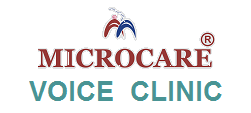How is a voice disorder diagnosed? ENT Consultation: The diagnosis is in conjunction with an endoscopic and video stroboscopic examination of the vocal cords, done by an ENT Surgeon or Otolaryngologist. • A thorough history taking, to determine the exact nature and possible causes of the complaint • Direct video …
Read More »Voice Diagnosis
Computerized Acoustic Voice Analysis
Computerized Acoustic Voice Analysis State-of-the-art voice laboratory at MicroCare Super Speciality Voice Clinic allow us to identify subtle features in the singing and speaking voice. Computerized voice analysis includes obtaining the acoustic signal (frequency and intensity) and the aerodynamic measures (pressure and airflow) for every patient with voice problem which …
Read More »Video Stroboscopy
Video Stroboscopy Laryngeal Video Stroboscopy: Video Stroboscopy enables the voice specialist to assess the vibratory characteristics of the vocal folds while you make sound. This is non-invasive, painless and OPD procedure provides the voice specialist with outstanding views of the larynx and the vibrating vocal folds. Voice specialist will look …
Read More »Flexible laryngoscopy
Direct Laryngoscopy Purpose of the Laryngoscopy To determine the cause of hoarseness of voice To determine the cause of bloody cough, throat pain or bad breath To obtain tissue biopsy in order to confirm suspected cancer of the larynx To determine the cause for difficulty swallowing or a feeling of …
Read More »FEES
Functional endoscopic evaluation of swallowing (FEES): Functional endoscopic evaluation of swallowing (FEES) with fibre optics is now a first choice method for studying swallowing disorders. Fiberoptic endoscopic evaluation of swallowing (FEES) is a procedure that allows voice and swallowing specialists to assess areas surrounding the voice box and opening of …
Read More »Laryngeal EMG
Laryngeal Electromyography Laryngeal electromyography provides essential clinical information about the neuromuscular status of the larynx that no other test can provide for patients with presumed neuromuscular disorders of the larynx. LEMG can be performed as an office procedure setting without any anaesthesia and it is well-tolerated by the vast majority …
Read More » Microcare Voice Clinic in Hyderabad
Microcare Voice Clinic in Hyderabad






